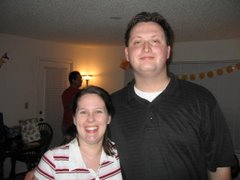
After a couple months of reading, I finally finished this book. At almost 800 pages, it was a book that attracted my eye, I usually prefer longer books. But this one was an especial challenge. The novel takes place in the early 1800's and is written in that style, with lengthy descriptions and frequently misspelled words (like using
chuse for
choose).
The storyline is compelling, though. I just think that if the book was a third the size, the pacing would have been much better.
To me, it seemed Ms Clarke was trying more to create a history of England, weaving in a rich and lengthy magical history with the realistic events of the period, including the wars against Napoleon. And if Clarke wanted to write a history book with an alternate history of England, she did a great job (she even included lengthy footnotes, the only thing missing was a bibliography). But if she wanted to create a compelling narrative, a lot could have been cut.
For one, almost every character is described meticulously. This is good in that you feel like you really know the main characters. Its bad because she did this to minor characters who were only in one scene or that we may have only met in passing. This description extends to most of the setting as well. Every home, castle, library, forest, and moor is described in painstaking detail that is almost painful to read.
As I was getting to the end of the book, I started to think that maybe there'd be a great payoff at the end, something to make everything else worth it. Well, while the ending was decent and interesting, it wasn't the result I was hoping for. Like the rest of the book, it was slow and slightly disappointing.
But all of that is okay, because Clarke has reportedly signed a six, maybe even seven-figure movie deal. I'll be looking forward to the movie. I bet this book will translate well to the big screen.
-------------------------------------------------------------------------------------------
A note on the writer's strike.
I've seen on the news that the Writer's Guild, the union responsible for writing movies, TV shows, and late night comics like Jay Leno and David Letterman, has decided to strike. They want a bigger cut on DVD and internet sales of movies and TV shows. What do I think about this? Sure, they deserve a cut, but like baseball strikes, I don't really feel that bad. First, the industry makes enough money, and while I don't begrudge anyone making money (I'd like to make more myself), my real concern is the current quality of writing. When most of the flicks at the theater are sequels or idiotic comedy, I feel like maybe we should find new writers.
Some writers complain about job security, saying the market is volatile and they never know if they'll have work. Well, they chose the profession. I get tired about people complaining about job security. They make it sound like the job is theirs, like its their property. A job belongs to the person who creates it. If a studio needs a script, they hire a writer. They keep that writer until the job is done or until the writing starts to suck.
Its the same for any profession. I have a job. It's not my job, it belongs to the hospital I work for. If my quality drops, or if the hospital decides to cut the possession, then I don't have the job anymore. Or, since its their job, they can cut me for any reason or no reason (unless its discriminatory). The real definition of job security is for me to do my job so well that my employers will recognize my value and want to keep me.
If the Hollywood writers want jobs, then they need to write well and make entertaining television and movies. They shouldn't keep their jobs and make more money simply because they can shut down production whenever they choose.
 Tapping the Dream Tree is a collection of short stories that take place in de Lint's fictional town of Newford. The stories include several recurring characters from other Newford novels, such as Jilly and Geordie; Holly, the bookstore owner; the Kelledys, a couple that play music in town and happen to know a lot about the faerie world; Christie Riddel, who records real stories of magic he comes accross; and others.
Tapping the Dream Tree is a collection of short stories that take place in de Lint's fictional town of Newford. The stories include several recurring characters from other Newford novels, such as Jilly and Geordie; Holly, the bookstore owner; the Kelledys, a couple that play music in town and happen to know a lot about the faerie world; Christie Riddel, who records real stories of magic he comes accross; and others.




